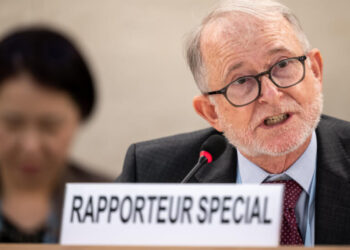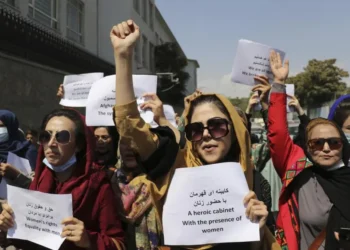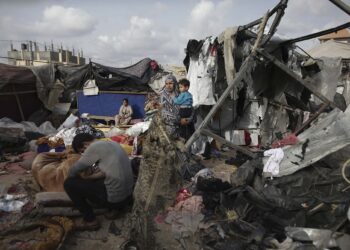Human Lives Human Rights: The Polish government’s declaration of a “state of emergency” at the border with Belarus presents serious risks for asylum-seekers trying to reach Poland and threatens to exacerbate the already dire situation faced by Afghans, who have been held there without adequate food and clean water for over three weeks, after being pushed back from Poland.
The state of emergency will restrict the already limited access and work of journalists reporting on the issue as it bans the use of recording equipment in the area. It will also hinder the work of lawyers assisting the asylum-seekers, as well as NGOs and activists carrying out vital human rights monitoring.
On 1 September, the UNHCR and Belarusian Red Cross with the support of Polish Red Cross brought humanitarian help to the group of Afghan asylum-seekers held at the border.
While UNHCR and Red Cross have provided basic support, the human rights organizations remind the Polish authorities to fully comply with last week’s European Court of Human Rights order to provide those stuck at the border with food, water, clothing, adequate medical care and shelter.
There are reports that Belarusian border guards are helping people to cross over into Poland, Lithuania and Latvia. On 6 July, Belarusian President Alyaksandr Lukashenka announced that he would not stop people crossing the border into those countries. However, this must not be used as an excuse for unlawful pushbacks of asylum-seekers and denial of access to the asylum procedure.
As per the EU and international refugee law, Poland is obliged to ensure individual assessment of all asylum claims. Human Rights firms call on Poland’s government to end pushbacks, to ensure access to the territory for those seeking protection, and to immediately provide refugees held at the border with Belarus with essential humanitarian assistance.
On 25 August, soldiers of Poland’s army started building a fence on the border with Belarus. On 31 August, the Polish government requested the President of Poland to declare a state of emergency for 30 days in the regions bordering Belarus, on the grounds of risks posed by the “3,000 attempted border crossings in August”. The declaration of the state of emergency would include a ban on assemblies, protests, mass events, and cultural events, among others.


















